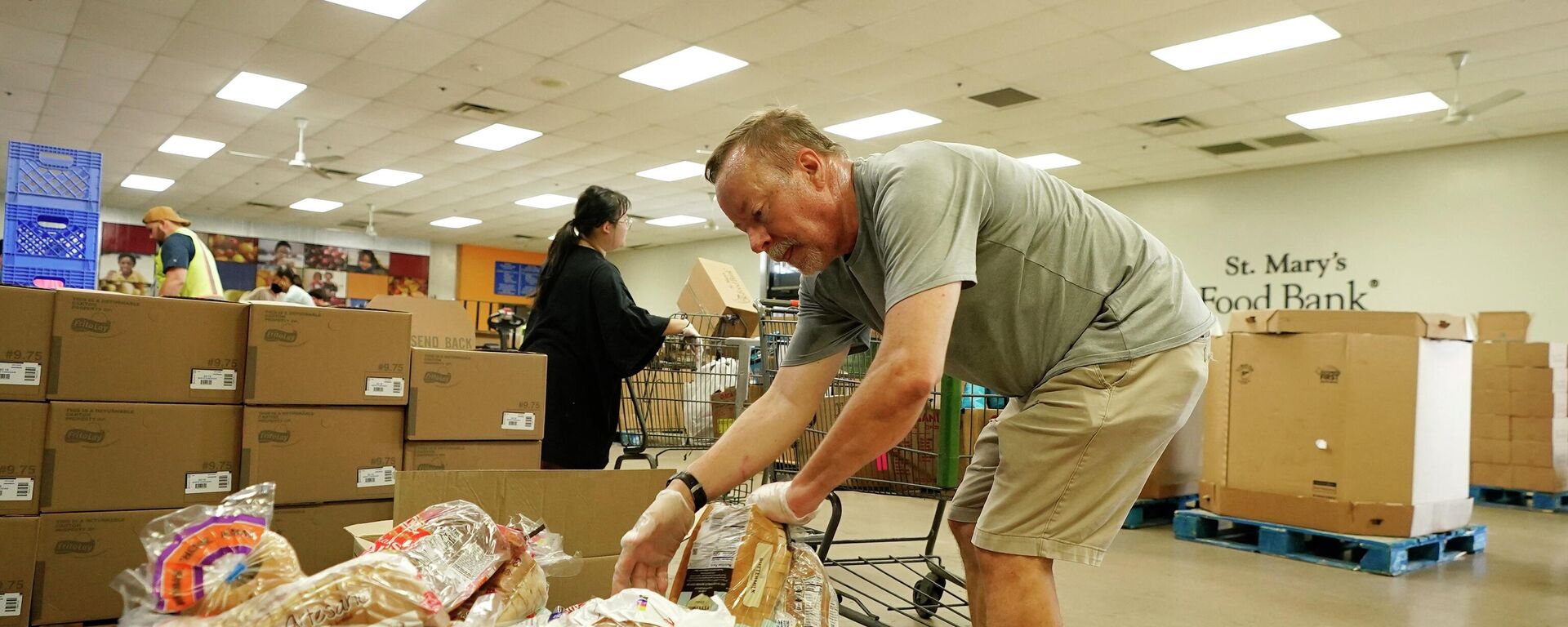https://sputnikglobe.com/20231209/canada-faces-wave-of-reverse-immigration-amid-economic-strain-1115501093.html
Canada Faces Wave of Reverse Immigration Amid Economic Strain
Canada Faces Wave of Reverse Immigration Amid Economic Strain
Sputnik International
There's been a noticeable spike in Canada's emigration rate rcently. The initial six months of the year saw roughly 42,000 people emigrate, following 93,818 in 2022 and 85,927 in 2021.
2023-12-09T18:18+0000
2023-12-09T18:18+0000
2023-12-09T18:18+0000
americas
justin trudeau
canada
vancouver
toronto
statistics canada
https://cdn1.img.sputnikglobe.com/img/102008/60/1020086011_0:254:4928:3026_1920x0_80_0_0_e1beec2a2fa021db35c011872a3bf6fa.jpg
Canada's housing shortages and skyrocketing living costs are transforming the dream of prosperity into a survival challenge for many immigrants, media reports say.These hardships are prompting a growing number of immigrants to reconsider their decision to move to the 'Great White North', leading to increased emigration.Prime Minister Justin Trudeau has championed immigration as a panacea for Canada's aging demographic and sluggish economic growth.According to Statistics Canada, this policy has driven the nation's population growth to its highest rate in over 60 years. However, Trudeau's approach overlooked the negative sides of rapid population influx, which have caused a reversal of the trend.Problems include inflated housing costs that are far outstripping incomes.Renting or buying a home in Canada now eats up a staggering 60 percent of household income rising to some 80 percent in Toronto and 98 percent in Vancouver. In response, Trudeau's government has set a cap on immigration of 500,000 people per year from 2025, aiming to ease the strain on the housing market.The first half of 2023 alone saw about 42,000 departures, on top of the 93,818 in 2022 and 85,927 in 2021.Although these numbers dipped during the COVID-19 pandemic, they are rising again — signaling a potential flaw in the government's immigration-centered strategy according to the Institute for Canadian Citizenship (ICC) and Statistics Canada.Although the current emigration figure is smaller than the 263,000 immigrants arriving during the same period, the steady increase is causing concern and could undermine Trudeau's immigration policies. In the past eight years, his government has granted permanent residency to a record 2.5 million people.Emigration as a percentage of Canada's overall population reached 0.2 percent in the mid-1990s and currently stands at about 0.09 percent. While these figures are relatively low, the rising trend is alarming. Lawyers and immigration consultants caution that the trajectory could tarnish Canada's reputation as a top destination for immigrants if it accelerates.
https://sputnikglobe.com/20231025/food-banks-in-canada-registered-record-19mln-visits-in-march-1114479097.html
americas
canada
vancouver
toronto
Sputnik International
feedback@sputniknews.com
+74956456601
MIA „Rossiya Segodnya“
2023
Chimauchem Nwosu
https://cdn1.img.sputnikglobe.com/img/07e7/09/01/1113046371_0:99:1536:1635_100x100_80_0_0_9c5c627283eca931c39fe4852bbb301c.jpg
Chimauchem Nwosu
https://cdn1.img.sputnikglobe.com/img/07e7/09/01/1113046371_0:99:1536:1635_100x100_80_0_0_9c5c627283eca931c39fe4852bbb301c.jpg
News
en_EN
Sputnik International
feedback@sputniknews.com
+74956456601
MIA „Rossiya Segodnya“
Sputnik International
feedback@sputniknews.com
+74956456601
MIA „Rossiya Segodnya“
Chimauchem Nwosu
https://cdn1.img.sputnikglobe.com/img/07e7/09/01/1113046371_0:99:1536:1635_100x100_80_0_0_9c5c627283eca931c39fe4852bbb301c.jpg
canada, cost of living, housing shortage, reverse immigration, immigrants, economic strain, living expenses, migration trend, high costs, economic pressures, reverse exodus, immigration challenges, surging expenses, canadian dream, immigration narrative, canada's economy.
canada, cost of living, housing shortage, reverse immigration, immigrants, economic strain, living expenses, migration trend, high costs, economic pressures, reverse exodus, immigration challenges, surging expenses, canadian dream, immigration narrative, canada's economy.
Canada Faces Wave of Reverse Immigration Amid Economic Strain
The first six months of this year saw roughly 42,000 people leave the country, following on the heels of 93,818 who emigrated in 2022 and 85,927 in 2021.
Canada's
housing shortages and skyrocketing living costs are transforming the dream of prosperity into a survival challenge for many immigrants, media reports say.
These hardships are prompting a growing number of immigrants to reconsider their decision to move to the 'Great White North', leading to increased emigration.
Prime Minister Justin Trudeau has championed immigration as a panacea for Canada's aging demographic and sluggish economic growth.
According to Statistics Canada, this policy has driven the nation's population growth to its highest rate in over 60 years. However, Trudeau's approach overlooked the negative sides of rapid population influx, which have caused a reversal of the trend.
Problems include inflated housing costs that are far outstripping incomes.
Renting or buying a home in Canada now eats up a staggering 60 percent of household income rising to some 80 percent in Toronto and 98 percent in Vancouver. In response, Trudeau's government has set a cap on immigration of 500,000 people per year from 2025, aiming to ease the strain on the housing market.

25 October 2023, 15:41 GMT
The first half of 2023 alone saw about 42,000 departures, on top of the 93,818 in 2022 and 85,927 in 2021.
Although these numbers dipped during the COVID-19 pandemic, they are rising again — signaling a potential flaw in the government's immigration-centered strategy according to the Institute for Canadian Citizenship (ICC) and Statistics Canada.
Although the current emigration figure is smaller than the 263,000 immigrants arriving during the same period, the steady increase is causing concern and could undermine
Trudeau's immigration policies. In the past eight years, his government has granted permanent residency to a record 2.5 million people.
Emigration as a percentage of Canada's overall population reached 0.2 percent in the mid-1990s and currently stands at about 0.09 percent. While these figures are relatively low, the rising trend is alarming. Lawyers and immigration consultants caution that the trajectory could tarnish Canada's reputation as a top destination for immigrants if it accelerates.




